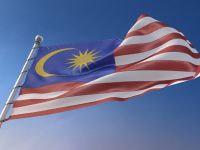Wary of entangling themselves in the web of Afghanistan's clannish political scene, US officials refused Monday to publicly endorse a peace plan offered by former Afghan king Mohammad Zahir Shah.
However, officials said privately Washington would back the convening of a "Loya Jirga," a grand assembly of Afghanistan's elite, should the country's various factions decide to do so.
"The United States is not going to get in the business of choosing who rules Afghanistan," White House spokesman Ari Fleischer said of Shah's proposal to convene the assembly to elect a transitional government to replace the Taliban militia.
"But the United States will assist those who are seeking a peaceful and economically developed Afghanistan that does not engage in terrorism," he said, referring to the Taliban's refusal to hand over Osama bin Laden, the prime suspect in the September 11 terrorist attacks on New York and Washington.
The reaction to the former king's idea was similar at the State Department, where spokesman Richard Boucher repeatedly declined to characterize what the United States thought of the plan.
"We believe and have always believed that Afghanistan needs a broad-based government that's representative of the Afghan people and I'll just leave it at that," he told reporters.
"It's up to the Afghan people to decide how they go about this," Boucher added. "We certainly believe in an inclusive process. The Loya Jurga is one way of doing that, but we're not picking the government or picking the process."
Both Boucher and Fleischer criticized the Taliban, suggesting the militia needed to be ousted.
"The Taliban is not a representative government," Boucher said. "The Taliban has betrayed the interests of the Afghan people in many different ways, including by allowing foreign terrorists to operate freely in Afghanistan. The Afghan people deserve a better government."
Senior officials noted the Loya Jirga idea has picked up support, noting the United States would approve it if all the factions agreed to it.
"The Loya Jirga is fine and we would certainly support it if that's what the Afghan factions decide they want to do," one senior State Department official said.
"That is the idea they have had under discussion, but in the end it's up to them; it's not for an outside party to start specifying what they need and how they go about it," the official said.
Another senior official added that Washington did not want to be seen as approving of, or endorsing, one particular idea.
"We are not choosing factions and we are not choosing individuals," the second official stressed.
The king, who has said he is ready to return to Afghanistan to head a transitional government, has met repeatedly in recent days with members of anti-Taliban forces as well as senior US diplomats and a group of US lawmakers.
Boucher refused to characterize the conversations with the king, saying only that they are part of "long-standing contacts with Afghan individuals and leaders of significant factions."
A Loya Jirga can convene for just a day or several months, bringing together hundreds of participants in Afghanistan's seat of power, Kabul. No time limits are set, and its decisions are binding.
It is a method Afghans have used for centuries to solve political crises, and is, in theory, the only national decision-making process that has in the past been accepted by all members of Afghanistan's complex patchwork of religious and ethnic groups -- WASHINGTON (AFP)
© 2001 Al Bawaba (www.albawaba.com)







